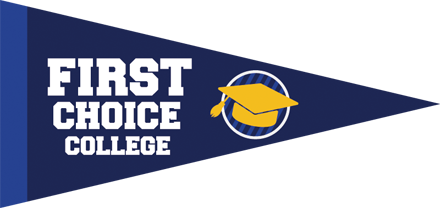
High school students have to be prepared before going to college. This period in the educational journey of students has to be productive enough to gain the right amount of knowledge and skills. College is the real thing. This is where the students will build their dreams. It is where they can look forward into the future and see themselves as a success.
On the other hand, it is also a scary place. College will be full of activities, far harder than those in high school. Knowledge and skills will not be enough. Students also have to possess the needed qualities to thrive in their new environment.
So now, the question is how do educational institutions prepare students for college? Is there a certain method to do this? In this article, we are going to talk about this critical matter. As you may know, “college” is not for everyone.
In fact, according to a study from Harvard University, only 56% of college students complete their degree. This is very alarming especially if we consider the number of high school students who are not getting a college education.
Why is this happening?
According to the latest findings conducted by the National Assessment of Educational Progress (NAEP) a.k.a. the Nation’s Report Card, only 37 percent of high school students are prepared for college. Why is this happening in a country where high achievers are very prevalent?
The blame goes both ways. The methods of the schools are not that enough to prepare students for college. Many college students are complaining about their high school education because they feel that it didn’t help them prepare for college. They believe that it all boils down to the quality of learning that high school institutions are offering today.
In high school, you need to memorize a lot of things in terms of Science and the formulas involved in Math. There are also a lot of quizzes and standardized tests. However, when students go to college, the game suddenly changes. Students discover that memorizing is not that useful, but comprehension is a must.
Students have to understand the lessons and not just learn the facts. Another point to consider is that in high school, when a student attends classes regularly, they automatically get a passing grade.
However, when they are already in college, some professors don’t care if they are going to pass or not. It all depends on their performance in the classroom. Plus, the workload in college is far more demanding than in high school. You have to work hard for those passing grades.
Now, as per students’ opinions, we can say that high school today is not too bad. There are still small things that students should appreciate as high school is where students can learn the fundamentals of each lesson.
High school also teaches the students to acquire the necessary attributes that they can use in college. There are still a lot of things that students can learn from high school. They just have to notice these things and use them when they go to college.
A School That Defies the Norm
While most schools are too busy following their curriculum, there are schools that offers a different kind of learning experience for high school students.
Their methods go far beyond memorizing for exams and quizzes. They are famous because of their education from a deeper perspective. This is the Waldorf Academy in Toronto.
Waldorf Academy offers a wide variety of lessons in Sciences, Math, Arts, and Humanities, with a healthy dose of Social Sciences and Physical Activities. This institution makes sure that students are actively engaged in the learning process. Students in this school exhibit awareness, expertise, and clear thinking in a variety of areas.
Waldorf Academy is a school where students can actually entrust their future. As proof, statistics show that nearly 100% of the graduates from Waldorf high school get into College or other post-secondary programs.
According to the college professors who handled these students, the kind of education that they had in Waldorf Academy is evident. They are showing signs of clear-thinking and interest in the lessons—not only on the context but also in its sense.
Is your child ready for college?
Don’t compromise the future of your kids. High school is a critical part of the children’s educational journey. It is the start of making dreams and building them.
If they are not entirely equipped with the necessary knowledge, skills, and qualities, it would be hard for them to finish a degree.
So, why risk the future of your child while you can choose Waldorf Academy? Choosing a high-quality school with good-quality learning methods and teachers that are the best at what they do. In this school, you can be sure that you child is in good hands.








 For more information about First Choice College visit their website:
For more information about First Choice College visit their website: 

 Dear High School Junior,
Dear High School Junior,